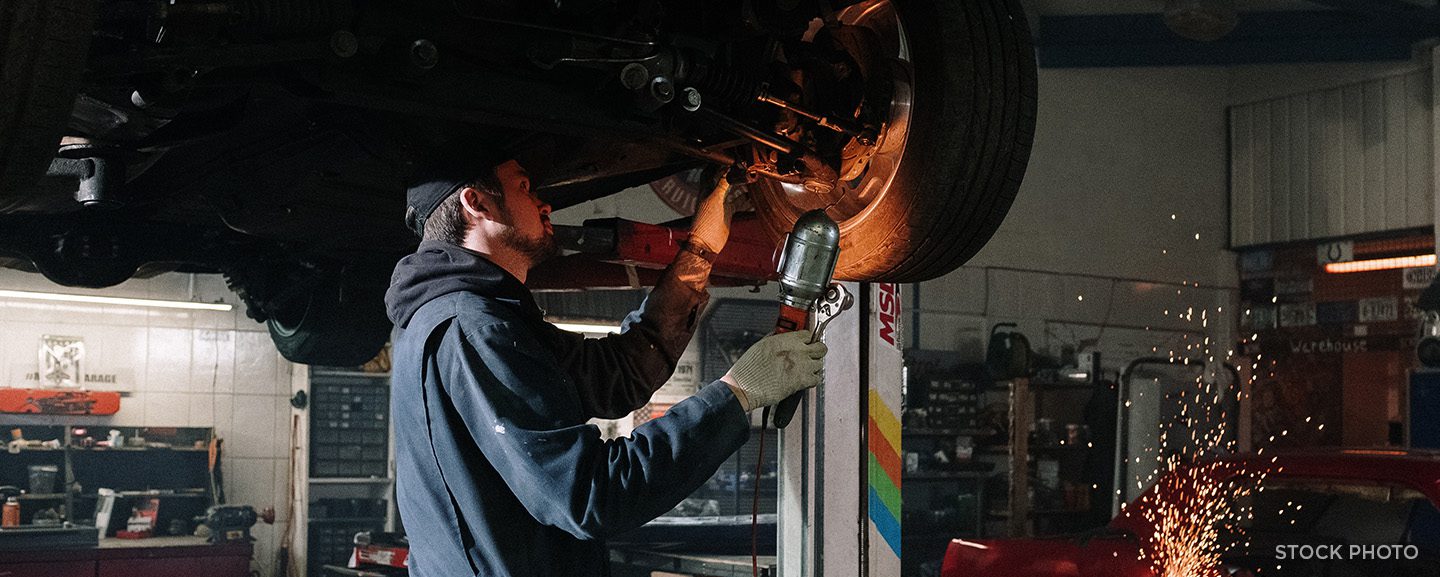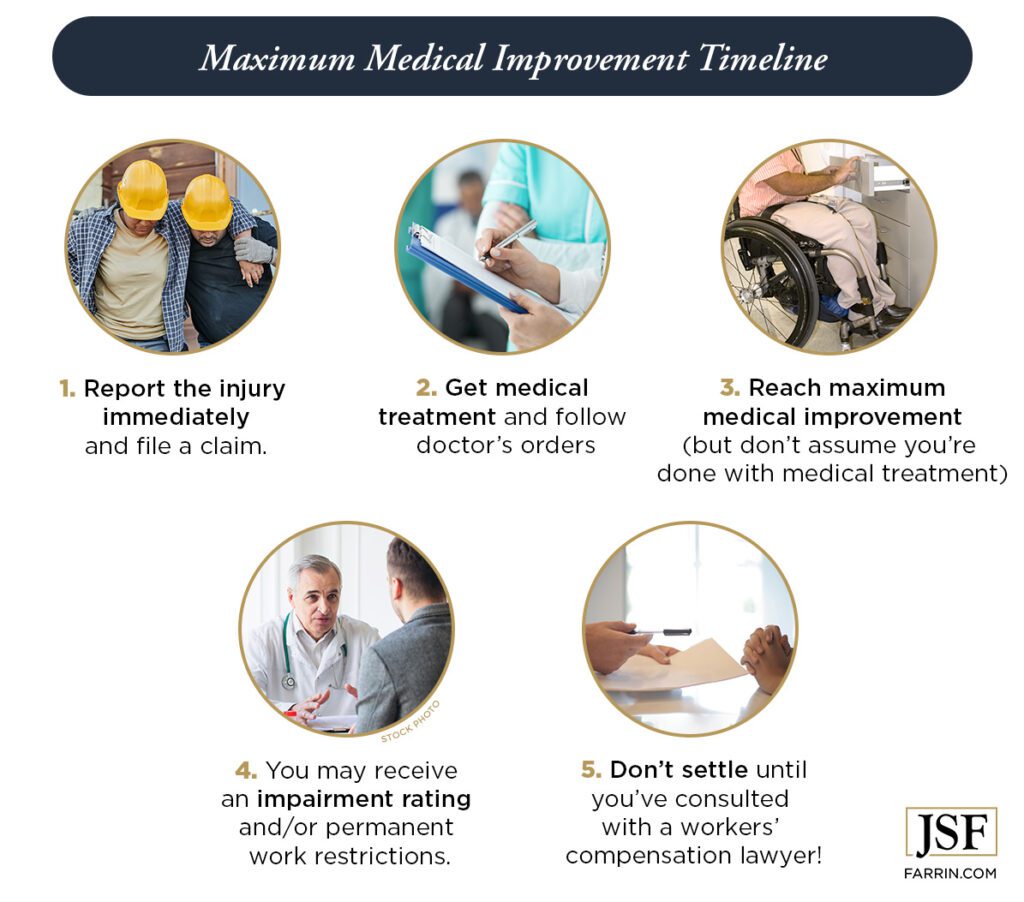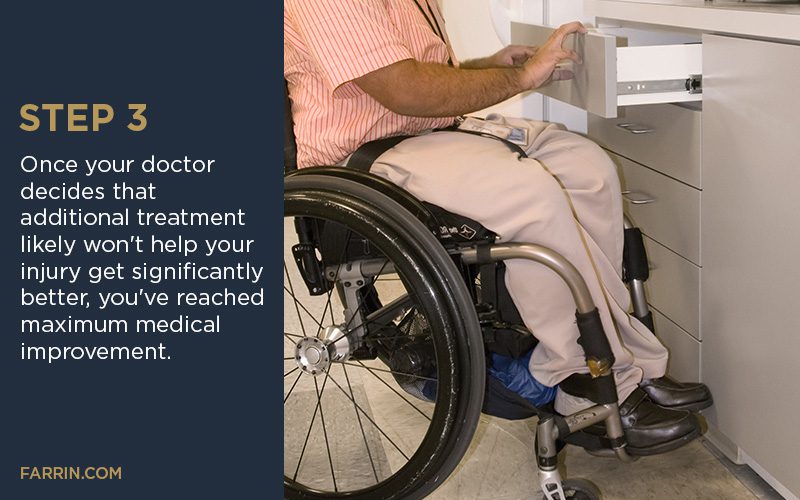Maximum medical improvement (MMI) is an important milestone in a workers’ compensation claim. It’s the point where a physician has determined that further medical treatment isn’t likely to significantly improve the worker’s injury and when permanent disability benefits may be determined.
There’s much more to it, though. How you get to MMI, what you must do to achieve it, and what you do once you reach it are all important to know. Mistakes at any of these steps can mean reduced benefits or none at all.
As a workers’ compensation attorney licensed in both North Carolina and South Carolina, I’ve seen how something as seemingly straightforward as MMI can turn into a battleground for the client, so I want to explore some aspects I see confusing some clients at this stage.
Maximum Medical Improvement: A Workers’ Compensation Timeline
When you first suffer a workplace injury, your injury must preclude you from working for at least seven days, after which some degree of temporary disability benefits generally kicks in. If your injury keeps you out of work for more than 21 days, you can receive benefits for the first seven days as well.
Here are some key stages in reaching MMI in your workers’ comp case:
Reporting Your Injury and Filing a Workers’ Compensation Claim
The first step in filing for workers’ comp is reporting your injury to your employer. This should be done as soon as possible, as there are strict reporting requirements. In North Carolina, injured workers should report their injuries to their employer in writing within 30 days. In South Carolina, you generally have 90 days. (If you don’t meet these deadlines, you should talk to a workers’ compensation attorney who can help you understand whether you might still be eligible for benefits.)
STEP 1: Report the injury immediately and file a claim.
You should seek to file a claim immediately – the sooner you file, the sooner you may receive benefits. I recommend that you enlist an experienced workers’ compensation attorney to help you – not only can we ensure all deadlines are met and forms are filed, but we can also handle all communication with your employer’s insurance company. While your employer and their insurer are protecting their own interests, your attorney is safeguarding yours.
Medical Examination and Treatment
You should seek medical treatment for your injury as soon as possible. In workers’ compensation cases, the insurance company gets to pick your doctor if they accept responsibility for your injury.
STEP 2: Get treatment and follow instructions from the treating physician.
If your claim is approved, the insurance carrier assigns a doctor, and you’ll need to attend treatment appointments, undergo tests, and follow the restrictions and instructions from that doctor. If you disagree with the appointed physician’s treatment plan, the law allows you to seek a second opinion. Again, a workers’ comp attorney can prioritize your best interests and help you with this.
Reach Maximum Medical Improvement (MMI)
This can be a long process. Depending on your injury, the treating physician, the insurance company, and the results of a functional capacity evaluation, it could take months or more to reach this point. Once the treating physician decides that further treatment will likely not result in any significant improvement, they will make an MMI determination.
STEP 3: When your doctor decides that additional treatment likely won’t help your injury get significantly better, you’ve reached maximum medical improvement.
Note that reaching maximum medical improvement does not mean your medical treatment is necessarily over. Some injuries require long-term care, medicines, therapy, and so on, and those are things any workers’ compensation settlement should address.
Receive Disability Rating and Permanent Restrictions
If you cannot make a full recovery and still have some sort of permanent impairment, you will be assigned a disability rating. You may also be assigned permanent work restrictions (which may be even more important than your rating).
STEP 4: The doctor will assign an impairment rating and/or permanent work restrictions.
If the doctor thinks you have suffered some sort of permanent disability or limitation, they will assign a disability rating and/or permanent work restrictions. Your ability to do your old job may have been forever damaged. Your permanent restrictions and disability rating help to determine what benefits you qualify for and can significantly affect the value of any settlement. In some cases, it makes sense to seek a second opinion from another doctor on your disability rating and/or permanent restrictions.
Remember that maximum medical improvement isn’t necessarily the end of medical treatment – your injury may require treatment for the rest of your life. Future medical care and costs is one of many elements that should be factored into any final workers’ compensation settlement.
Workers’ Compensation Claim Settlements
Reaching maximum medical improvement signals that the end of your workers’ comp claim may be in sight. You and the employer’s insurance carrier now know what you can do moving forward. This is often when the two parties try to come to some sort of final agreement.
STEP 5: Consult with your attorney regarding any final settlement offers.
Any reasonable settlement should account for ongoing medical care, reduced or lost wages, and additional medical treatment that may be required down the line, like corrective surgeries. Remember that a for-profit insurer will try to settle your workers’ comp claim for as little as possible – and costs for medical bills are only going up.
Once you sign and settle, your case is over and you are likely barred from future claims for your injury. It’s critical to try to maximize your workers’ comp benefits before you end your claim. Do not sign a settlement until you have consulted a workers’ compensation attorney.
Consult an Experienced Workers’ Compensation Lawyer as Soon as Possible
You shouldn’t wait until you’ve reached maximum medical improvement before you talk to an attorney. In fact, sooner is better – and doesn’t cost you any extra. With our contingency fee arrangement, you’re not paying by the hour, so you can secure the help of an attorney early on in the process.2

Before you agree to a lump sum payment for your workers’ comp claim, call us at 1-866-900-7078 or contact us online for a free case evaluation from one of our attorneys.










